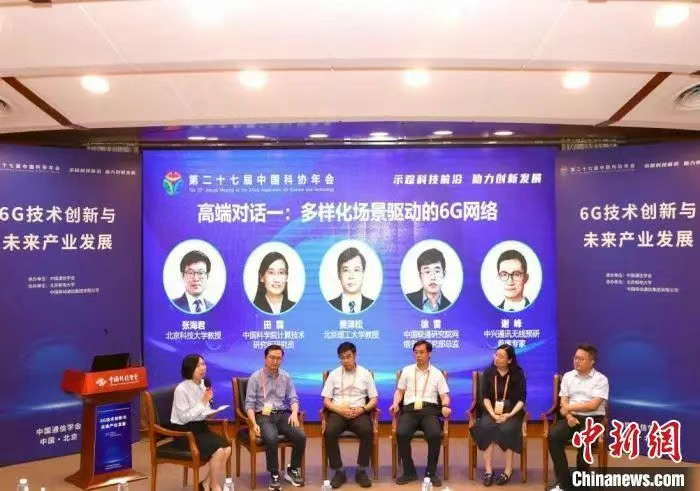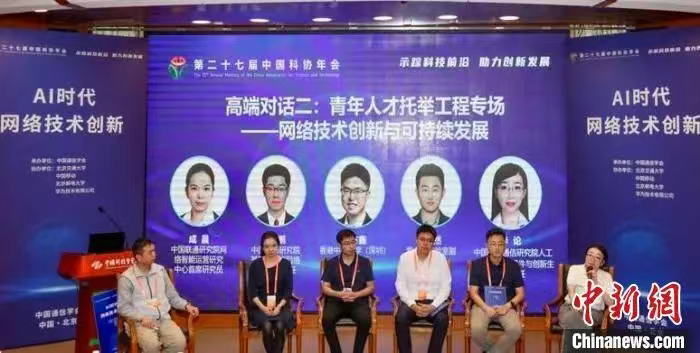Three focused forums on 6G innovation, AI-era network technologies, and intelligent systems were recently held in Beijing as part of the 27th Annual Meeting of the China Association for Science and Technology (CAST), organized by the China Institute of Communications.
6G Innovation and Future Industry Development
Industry leaders and researchers gathered to discuss the evolution of 6G, highlighting opportunities and technical frontiers.

Photo credit: China Institute of Communications
Academician Wu Hequan of the Chinese Academy of Engineering delivered a keynote titled "Exploring 6G Innovation through AI". Zhao Houlin, Honorary President of the China Institute of Communications, stressed the importance of international collaboration in his speech "Continued Innovation in 5G/6G Requires Global Cooperation". Wang Xiaoyun, Chief Scientist and Chief Engineer at China Mobile Communications Group Co., Ltd, shared insights on future wireless access networks.
Sessions covered key topics such as AI-enabled 6G security, sensing-computing convergence, and network architecture evolution. Speakers included Bi Qi (China Telecom), Peng Mugen (Beijing University of Posts and Telecommunications), Liu Jianwei (Beihang University), and Wu Shaoyun (Huawei).
Experts from China Mobile Research Institute, Beijing University of Science and Technology, and others participated in a roundtable on 6G for diverse scenarios. Young scholars also exchanged ideas on building a 6G innovation ecosystem.
Network Technologies in the AI Era
Another forum focused on the convergence of AI and communications. Professor Liu Yunjie at the Purple Mountain Laboratories presented a keynote on deterministic photonic-electronic networks. Other keynote speakers included Professor Zhang Hongke at the Beijing Jiaotong University, and Gao Tongqing, Deputy Chair of the China Mobile Science and Technology Committee.

Photo credit: China Institute of Communications
Panel discussions explored the challenges and potential of AI-native networks, including smart interconnection, digital twins, and network performance optimization. Young researchers from academia and industry debated the theme "AI+COM", offering fresh perspectives on future infrastructure.
Intelligent Systems with Rising Professionals
The third forum brought together senior and early-career scientists to discuss cutting-edge advancements in system modeling, robotics, and industrial AI.
Keynote topics included The New Industrial Revolution and Intelligent Robotics, Distributed Photovoltaic Coordination, Deep-Sea Robotics, Autonomous System Training, and Industrial Foundation Models. These talks reflected the convergence of control theory, AI, and real-world applications.
A roundtable on industrial digital transformation featured representatives from universities and industry, addressing the challenges and opportunities of smart manufacturing.
A special session spotlighted emerging professionals, where young scientists from Zhejiang University, Beijing Jiaotong University, Xi'an Jiaotong University, Nanjing University of Posts and Telecommunications, and the China Telecom Research Institute presented applied innovations in intelligent systems, reinforcing the growing role of early-career researchers in driving practical, future-oriented solutions.